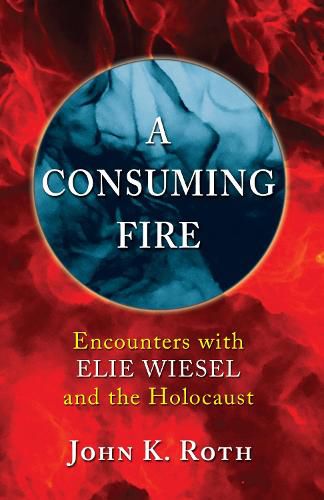Readings Newsletter
Become a Readings Member to make your shopping experience even easier.
Sign in or sign up for free!
You’re not far away from qualifying for FREE standard shipping within Australia
You’ve qualified for FREE standard shipping within Australia
The cart is loading…






This title is printed to order. This book may have been self-published. If so, we cannot guarantee the quality of the content. In the main most books will have gone through the editing process however some may not. We therefore suggest that you be aware of this before ordering this book. If in doubt check either the author or publisher’s details as we are unable to accept any returns unless they are faulty. Please contact us if you have any questions.
No catastrophe challenges treasured beliefs and cherished hopes more than the Holocaust, Nazi Germany’s genocide against the European Jews during World War II. Fueled by virulent, racist anti-Semitism, that disaster, which targeted Judaism as well as every Jewish life within the Third Reich’s lethal grasp, still underlines the fragile status of human rights and ethics, still undercuts optimism about human progress, and still undermines confidence about God’s moral authority, providential engagement with human history, and even God’s existence itself. Elie Wiesel, who died in 2016, was one of the relatively few Jews who survived Auschwitz. Before and after receiving the Nobel Peace Prize in 1986, he wrote profoundly in varied genres about the reverberations of the Holocaust. In A Consuming Fire, John K. Roth, a Christian philosopher transformed by Wiesel’s writings and friendship, explores how to cope constructively with the daunting realization that Christianity and Western philosophy were deeply implicated in the Nazi genocide–so much so that, in the case of Christianity, one can credibly argue: No Christianity = No Holocaust. A Consuming Fire is not a biography, a literary analysis, a philosophical critique, or a history. Instead it offers a story all its own–one that seeks to enliven a post-Holocaust Christian humanism, an outlook that Roth shares by underscoring his own journey, his quest to be responsible and accountable, as he responds to Holocaust challenges intensified poignantly and insistently by Wiesel’s testimony.
$9.00 standard shipping within Australia
FREE standard shipping within Australia for orders over $100.00
Express & International shipping calculated at checkout
This title is printed to order. This book may have been self-published. If so, we cannot guarantee the quality of the content. In the main most books will have gone through the editing process however some may not. We therefore suggest that you be aware of this before ordering this book. If in doubt check either the author or publisher’s details as we are unable to accept any returns unless they are faulty. Please contact us if you have any questions.
No catastrophe challenges treasured beliefs and cherished hopes more than the Holocaust, Nazi Germany’s genocide against the European Jews during World War II. Fueled by virulent, racist anti-Semitism, that disaster, which targeted Judaism as well as every Jewish life within the Third Reich’s lethal grasp, still underlines the fragile status of human rights and ethics, still undercuts optimism about human progress, and still undermines confidence about God’s moral authority, providential engagement with human history, and even God’s existence itself. Elie Wiesel, who died in 2016, was one of the relatively few Jews who survived Auschwitz. Before and after receiving the Nobel Peace Prize in 1986, he wrote profoundly in varied genres about the reverberations of the Holocaust. In A Consuming Fire, John K. Roth, a Christian philosopher transformed by Wiesel’s writings and friendship, explores how to cope constructively with the daunting realization that Christianity and Western philosophy were deeply implicated in the Nazi genocide–so much so that, in the case of Christianity, one can credibly argue: No Christianity = No Holocaust. A Consuming Fire is not a biography, a literary analysis, a philosophical critique, or a history. Instead it offers a story all its own–one that seeks to enliven a post-Holocaust Christian humanism, an outlook that Roth shares by underscoring his own journey, his quest to be responsible and accountable, as he responds to Holocaust challenges intensified poignantly and insistently by Wiesel’s testimony.